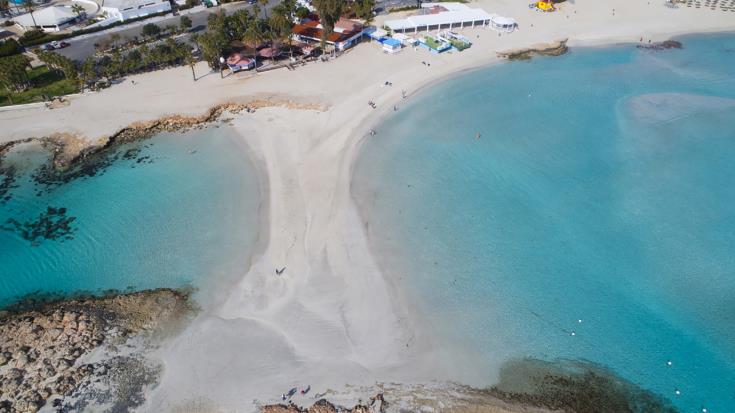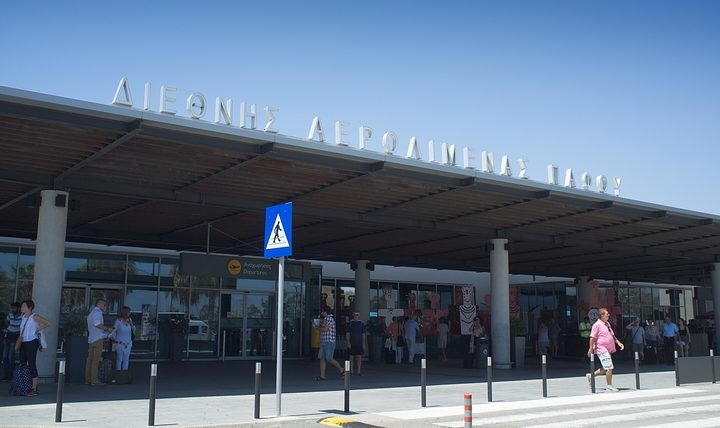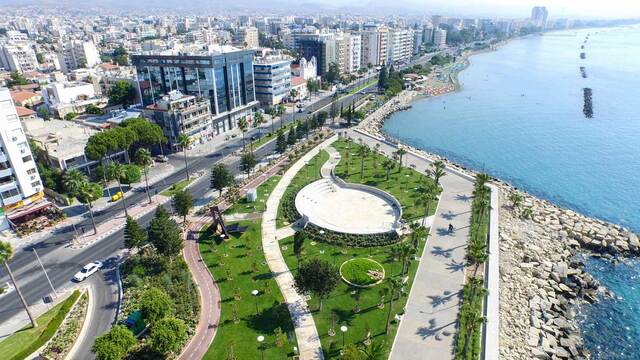As Cyprus tourism, hardest hit by COVID-19, is trying to stand on its feet it is dangerously running out of time due to an over-reliance on its warm Mediterranean sun and sandy beaches.
The shutdown of borders, the grounding of flights, imposition of social distancing measures and closing hotels and restaurants have spelt disaster for many countries.
But with Cyprus performing well in putting a lid on the spreading of COVID-19, it appeared ready to receive tourists ready to brave the outside world after lockdowns in Europe ended.
However, Cyprus does not have enough time to save the tourist season which essentially ends in August, as the island has yet to see investments in other forms of tourism which could prolong the season.
“The coronavirus outbreak, better yet, the aftermath has proven to us that we should have been investing in alternative tourism products, rather than just relying on the beach and sun to draw in holiday-makers,” said Fanos Tekelas, UCLAN Cyprus lecturer in Innovation and Entrepreneurship.
He argues that relying solely on the summer season, even more on a specific kind of tourism where tourists spend their time and money on hotels and beaches leaves Cyprus with no plan B in the aftermath of the coronavirus outbreak.
“Britons will have a hard time booking a holiday package as British tour operators notified Cyprus that they cannot include the island in their schedules if the country insists on asking tourists to carry a negative test for Covid-19 as a requirement to enter.”
Tekelas said that Cyprus has been focusing on the birth of new high-luxury hotels in key locations with little emphasis given on enhancing other products such as sports tourism.
“While in September Cyprus still offers tourists a sunny destination, after that pretty everything closes down.
We have not invested enough in other forms of tourism like agritourism, religious, sports and medical tourism to be able to attract more tourists in the not so warm months of the year,” said Tekelas.
He noted that over the past few years, authorities have done a good job in increasing seasonal tourists but this is not enough as Cyprus needs to increase winter tourism.
“This has been on the agenda of policymakers for more than a decade, but no action was taken thus far.
Agritourism could lead the way. However, this needs a substantial investment as does sports tourism”.
He argued that the Troodos area should be developed further while smaller communities in the region have already started taking initiatives through European support agencies for their development.
Tekelas noted there is a wide spectrum of people, especially of older age groups, who are very interested in agritourism packages.
“Winter tourism has tremendous potential and it is something that policymakers should take into consideration.”
However, arrivals of winter holidaymakers are still relatively low.
According to the Cyprus Statistical Service, 952,031 winter tourists visited Cyprus between October 2018 and April 2019.
This figure was dwarfed by the 2.57 million tourist arrivals during the summer season May to September 2019 (five months).
Sporting chance
Sports tourism is something that can easily be exploited since Central European tourists seem to be interested in it.
Other nearby competitive destinations haven’t highlighted the importance of this, and it is something where Cyprus can gain a competitive edge.
“Hence, we need to focus on laying the foundation and development of the infrastructure on these two types of tourism to increase tourist arrivals throughout the year.”
The Deputy-Ministry of Tourism is keen to develop this, establishing sports tourism as an integral part of the country’s tourism product.
“However, further moderations should take place to accommodate this. For instance, in other European countries a complex infrastructure has been installed to satisfy the needs of sports tourists,” argued Tekelas.
The ministry said it remains committed to its 10-year strategy for developing and diversifying tourism, as announced shortly before the coronavirus outbreak in Cyprus.
“Air connectivity is vital and as such, we need to focus on connecting Cyprus with all the major European capitals to promote both summer and winter tourism,” said a DMT source.
Efforts have brought about an increase in connectivity with airlines adding destinations which were not on their schedule before the COVID-19 outbreak.
However, as Tourism Minister Savvas Perdios himself has said, tourists from abroad will not exceed 100,000 this August – five times less than normal.
“The ministry’s first goal in getting the tourism industry back on track is the promotion of domestic tourism – more specifically to the island’s more remote, rural and mountainous areas, rather than the traditional beaches and seaside resorts,” the source added.
However, as the source argued, the Ministry will be back on track promoting alternative forms of tourism such as agritourism with packages that will include tours to Cyprus wine villages, halloumi producing facilities and more.
“Sports tourism is also one of our priorities with authorities focusing on cycling tournaments and developing infrastructure to support sport.”
Teams, especially from northern Europe, who do not have games during their heavy winter look for warmer places to carry out their training like Cyprus.
Cyprus is also working on developing medical tourism.
“Cyprus, thanks to the wide variety of modern private hospitals and clinics, excellent medical facilities with state-of-the-art equipment and experienced medical and paramedical staff – is rapidly becoming a popular choice for medical tourism.
Therefore, the island offers the possibility for both treatment and recovery”.
Cyprus travel agents are also trying to do their bit in developing alternative forms of tourism.
In comments to the Financial Mirror, Vasilis Stamataris, president of the Association of Cyprus Travel Agents said they are looking to engage in other forms of tourism, rather than just offering sun and sea packages.
“Cyprus is at the crossroads of three continents and we need to take advantage of its location by offering different quality services, focusing on the development of business, sport and winter tourism in general,” said Stamataris.
He is promoting Cyprus as a destination for medical tourism in cooperation with neighbouring Greece and Israel.
“Cyprus might be too small to venture into medical tourism on its own, but in cooperation with stakeholders from Israel and Greece, Cyprus could be put on the map as a medical tourism destination,” argued Stamataris.
“Cyprus may not be able to offer top medical services at attractive prices, but there is room for enhancing its services while offering patients the option to recover and regain their strength on a beautiful island that has constant sunshine.”










